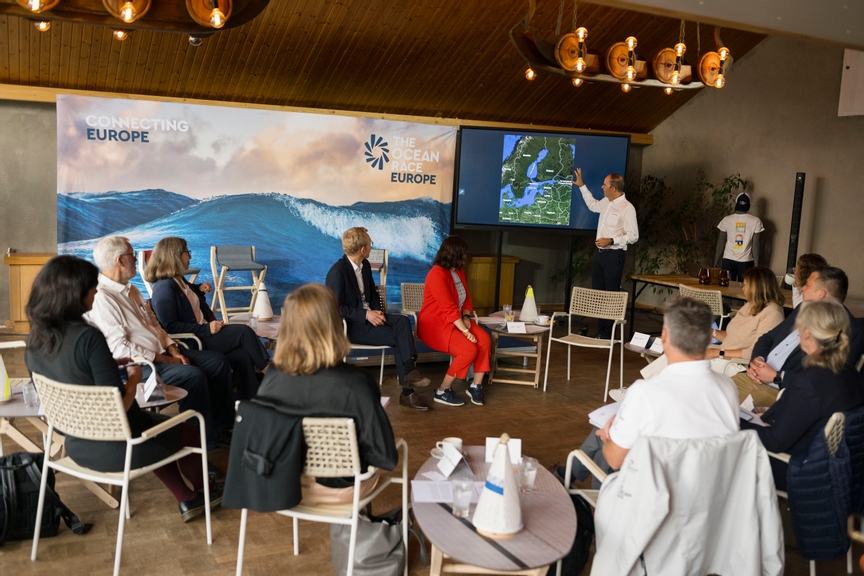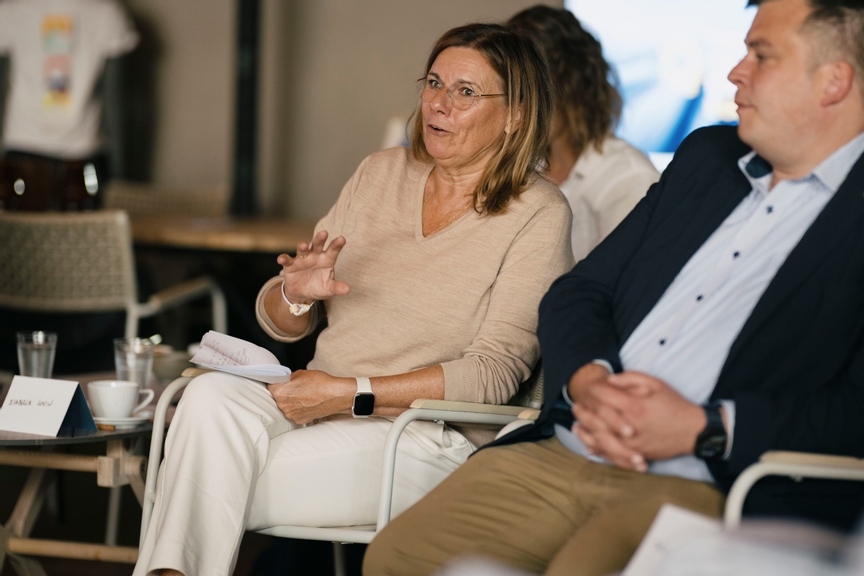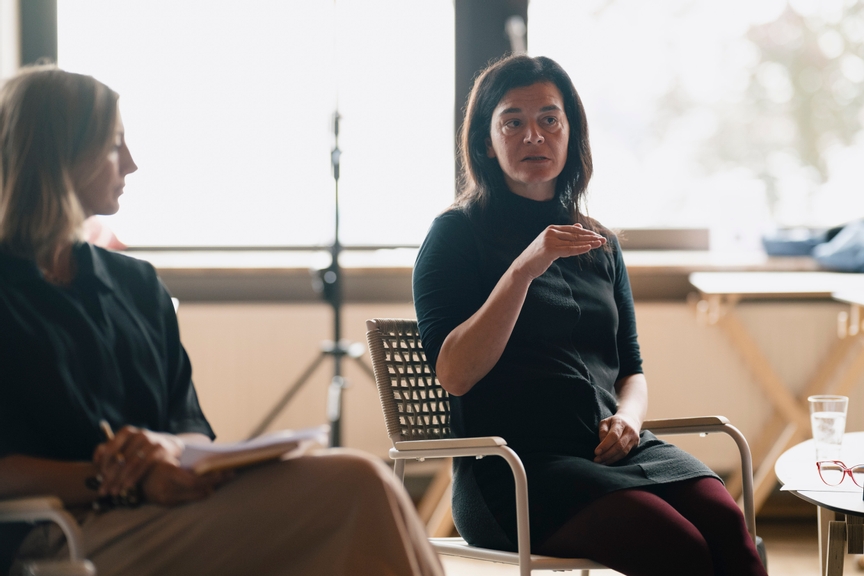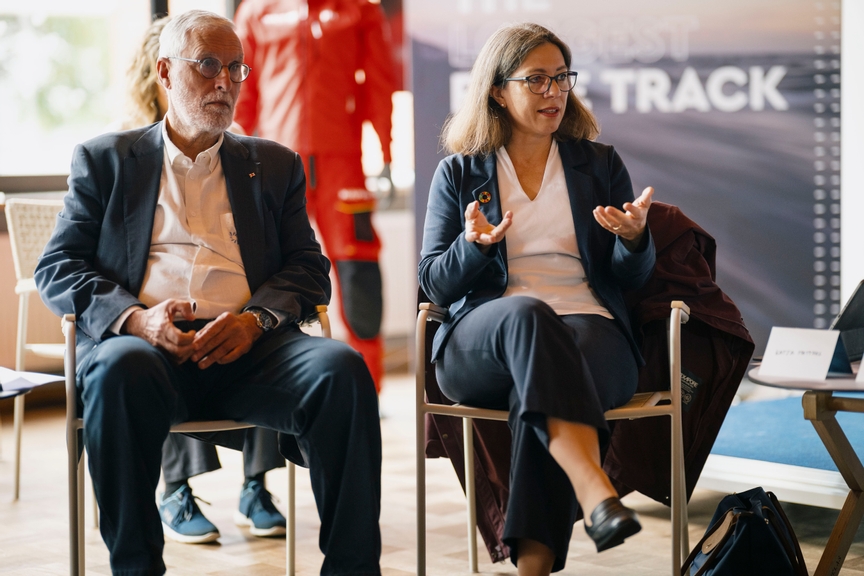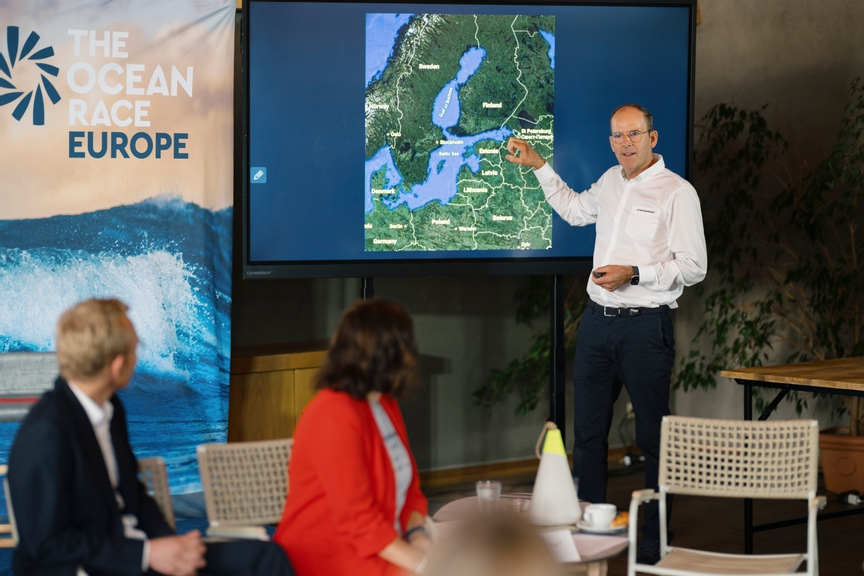Making waves in Kiel: high-level roundtable calls for urgent action to restore the Baltic Sea
Event held ahead of Sunday's start of The Ocean Race Europe
Ahead of the start of The Ocean Race Europe in Kiel, leaders from science, politics, and civil society came together for a high-level roundtable to discuss the escalating crisis in one of the world’s most imperiled marine ecosystems: the Baltic Sea.
The event, Making Waves – the Baltic Edition, is the third in a series of roundtables focused on coastal health. It builds on previous gatherings in Alicante (November 2024) and during the UN Ocean Conference in Nice (June 2025), and aims to bring the winning mentality of offshore sailing to the urgent race to restore our oceans.
Isabella Lövin, Member of the European Parliament and former Deputy Prime Minister of Sweden, set the tone: “The Baltic Sea is suffering from decades of neglect. It’s one of the most polluted seas in the world: shallow, nearly enclosed, and surrounded by nine countries with complex governance. Dead zones the size of Denmark lie on the seafloor, where nothing survives. We are in a crisis, but also in a moment of opportunity. We must act across borders, across sectors, and with a sense of shared urgency.”
Catherine Chabaud, former MEP, sailor, and ocean advocate, emphasized the power of connection and communication: “The Ocean Race Europe is not just a race, it’s a platform for storytelling. The Baltic is not separate from the global ocean. It’s part of the water cycle that binds us all. We must make the ocean a political priority; right now, the European Green Deal has no ‘blue’. A European Ocean Pact and a new Ocean Act would bring the ocean into the heart of EU policymaking.”
Katja Matthes, Director of GEOMAR Helmholtz Centre for Ocean Research Kiel and Professor for Atmospheric Physics, called for stronger science communication to regain trust and drive policy change: “The Baltic’s condition is a preview of our global ocean’s future: a fast-forward of what happens if we don’t act. We need politicians and the public to trust science again. We need to communicate better, with emotion, with stories, and with data. Scientists and storytellers must work hand-in-hand.”
Marine ecologist Dr. Eva Papaioannou warned of the alarming state of fish stocks in the Baltic, noting that scientific advice on quotas has consistently been exceeded, leading to ecological collapse: “In just 20 years, we have decimated our sea.”
Sanna Thimmig-Johansen, CEO of Voice of the Ocean, advocated for collaborative, solution-driven efforts: “We don’t need to reinvent the wheel. What we need is a shared, prioritized list of needs, especially funding for science, and better platforms to match resources with solutions.”
Antonio di Natale, Secretary General of the Fondazione Acquario di Genova Onlus, highlighted the deep ecological distress of the Baltic, underscoring the impact of heavy metals, underwater noise, and broken food chains on the marine environment.
Throughout the roundtable, participants called for a holistic approach that breaks down policy silos, stronger cross-border cooperation across the nine Baltic nations, an ecosystem-based approach to fisheries management, increased public awareness of how inland actions affect coastal and ocean health, better infrastructure to connect ideas, data, and funding sources.
As an immediate step, the panel urged governments to “give the Baltic a break” by reducing fishing pressure to allow critical species to recover, thus restoring ecological balance and improving water quality.
Richard Brisius, Race Chairman of The Ocean Race, highlighted the event’s unique ability to unite people and amplify critical messages about ocean health. “The Ocean Race is about uniting people to achieve the extraordinary. We can look to our sailors here in Kiel and take inspiration from the women and men who are about to embark on what is sure to be one of the biggest challenges they will face as sailors. We need to take on that spirit when we confront the challenges facing our ocean, and specifically the Baltic Sea.”
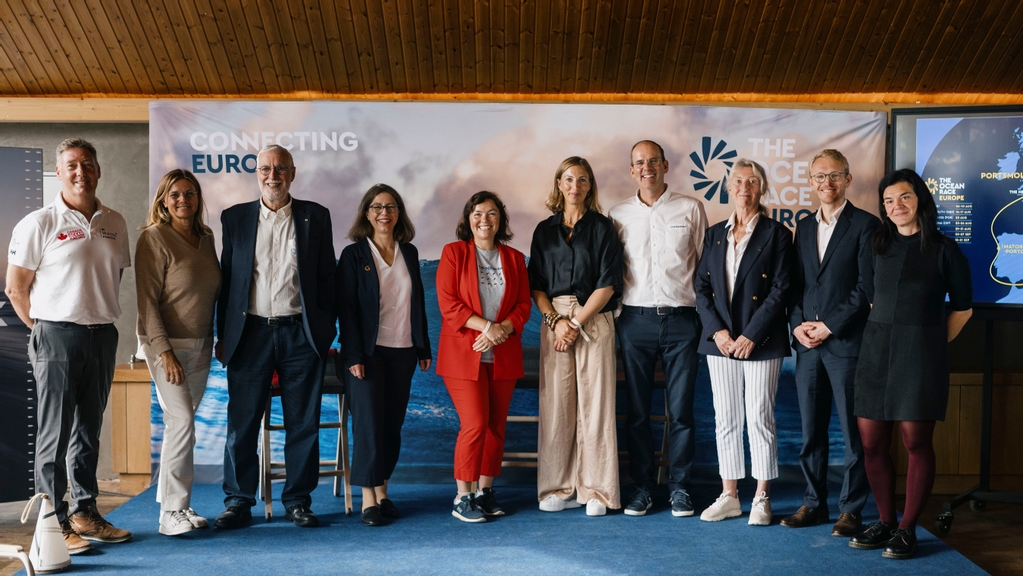
The participants lending their insights and support to The Making Waves - Baltic Edition Roundtable:
Isabella Lövin, Member of European Parliament
Dr Eva Papaioannou, Scientist in the Marine Ecology Research Division of the GEOMAR Centre for Ocean Research in Kiel
Sanna Thimmig-Johansen, Chief Executive Officer, Voice of the Ocean
Antonio di Natale, Segretario Generale, Fondazione Acquario di Genova Onlus
Katja Matthes Director of GEOMAR Helmholtz Centre for Ocean Research Kiel; Professor of Marine Meteorology
Catherine Chabaud, Former Member of the European Parliament (MEP); sailor and environmental advocate
Nick Maloney Canada Ocean Racing - Be Water Positive
Thies Holm GAC Managing Director
Iver Ahlmann, Managing Partner from ACO
Richard Brisius, Chairman, The Ocean Race
Lucy Hunt, Ocean Impact Director, The Ocean Race
